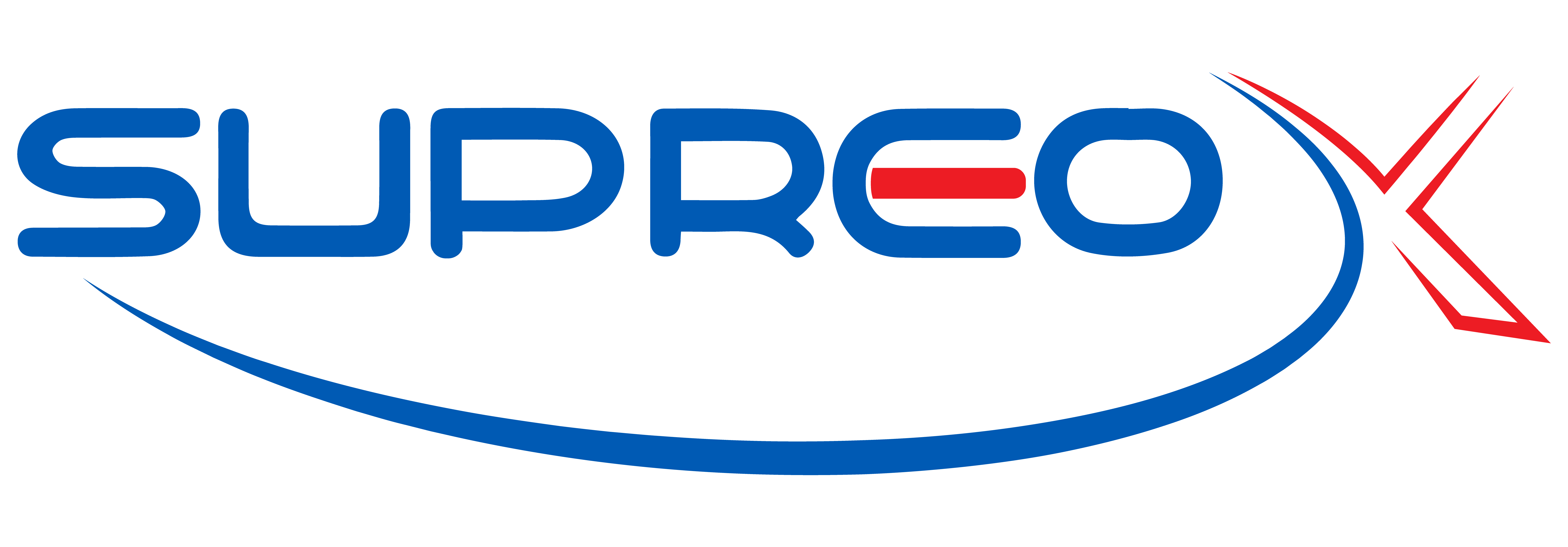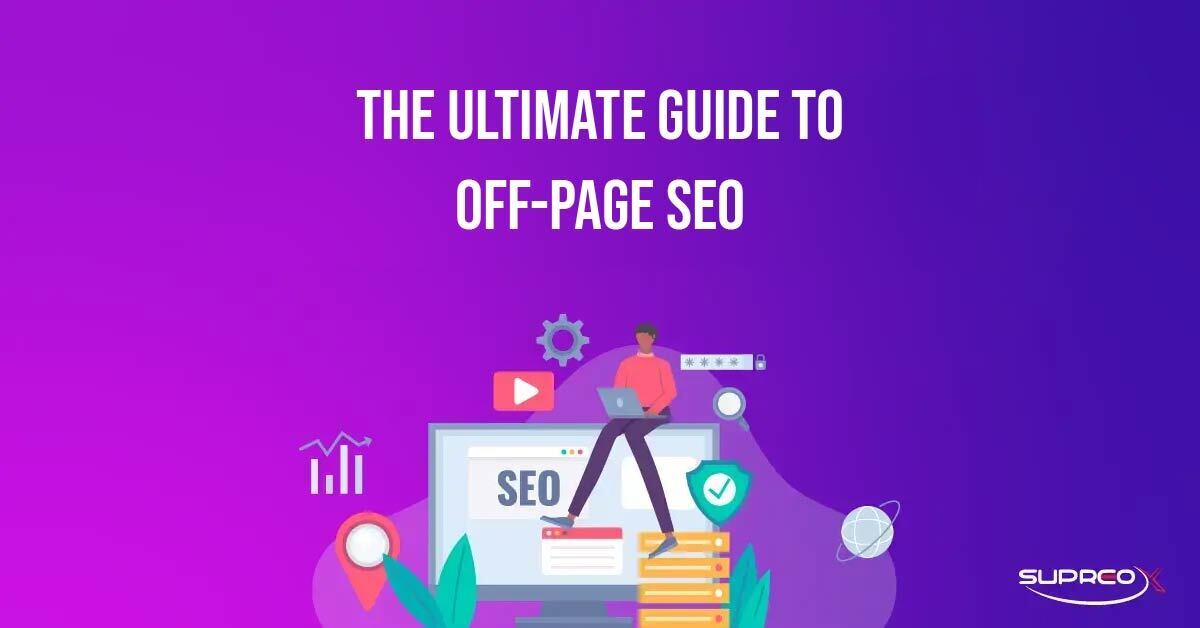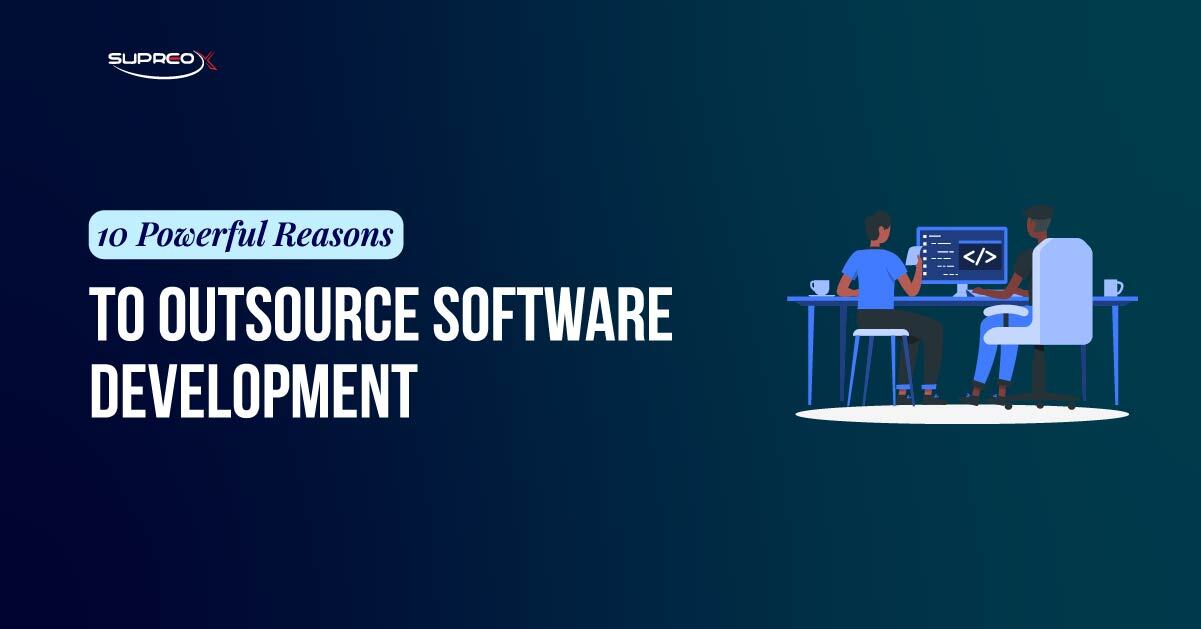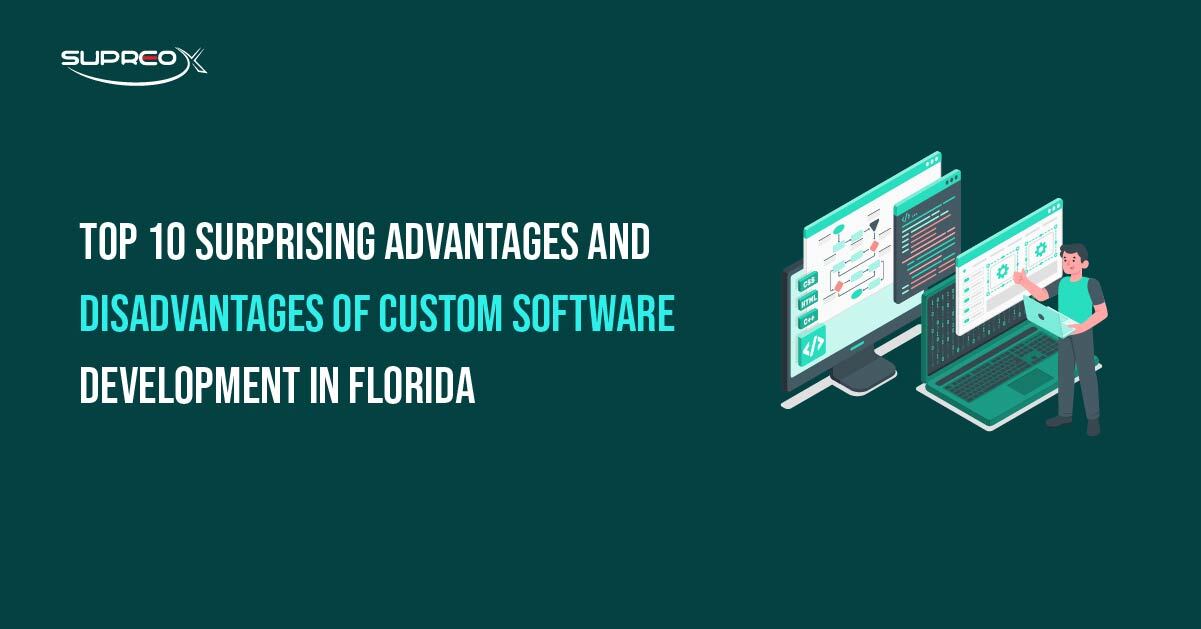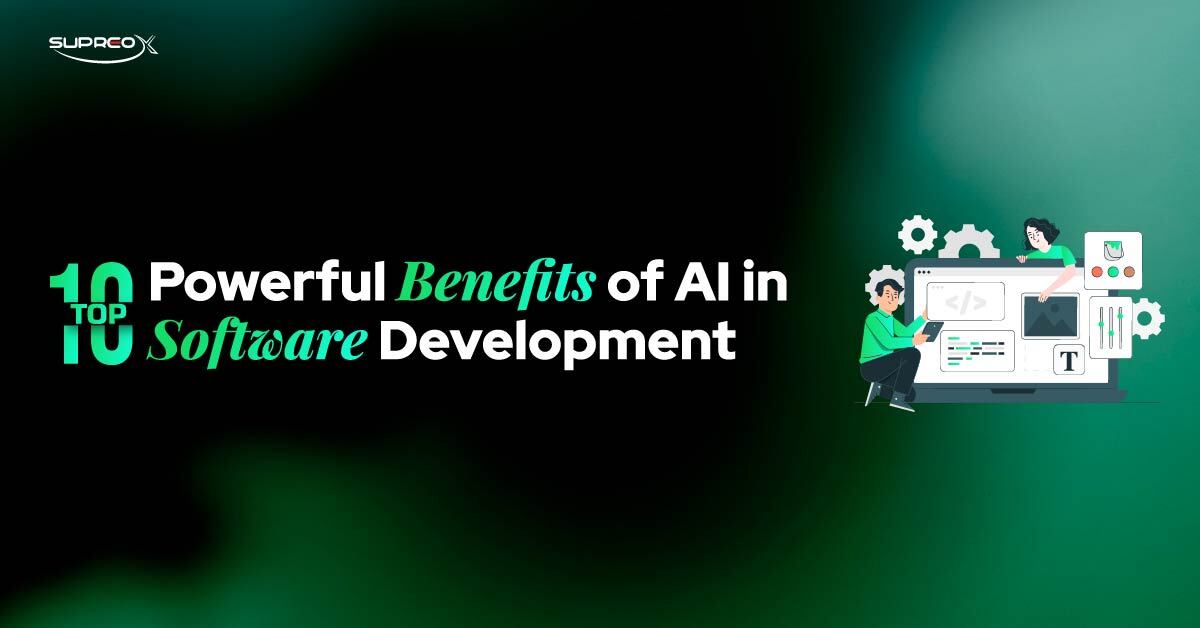Off-page SEO is everything you do outside your website to help it rank higher on search engines like Google. While on-page SEO means improving the content and structure of your website, off-page SEO means building a reputation for your site on the internet. This includes getting other sites to link to yours (link building), getting mentioned on social media, and having good reviews.
Off-page SEO is important because it tells search engines your site is trustworthy and worth visiting. This guide will teach you about off-page SEO strategies that work in 2025, using easy-to-understand language and practical tips.
What is Off-Page SEO?
Off-page SEO includes all the activities outside your website to improve its position on search engine result pages (SERPs). It’s like building a good reputation for your website. When other trusted sites link to yours, it’s like a vote of confidence for your site.
Why is Off-Page SEO Important?
Off-page SEO is important because:
It builds trust: When other websites link to yours, search engines see your site as trustworthy.
It boosts domain authority: The more high-quality links you have, the stronger your website becomes in search engines’ eyes.
It helps with E-E-A-T: E-E-A-T stands for Experience, Expertise, Authoritativeness, and Trustworthiness. Off-page SEO helps show search engines that your site has these qualities.
On-Page SEO vs. Off-Page SEO
To understand off-page SEO, it’s good to know how it’s different from on-page SEO.
On-Page SEO: Things you do on your website to make it better for search engines include using keywords, writing good titles, and adding images with alt text.
Off-Page SEO: Things you do outside of your website to show it’s valuable link building, social media marketing, brand mentions, and getting good reviews
How Do On-Page SEO and Off-Page SEO Work Together?
On-page SEO ensures that your content is high-quality and relevant. Off-page SEO tells the internet that your content is trustworthy. Both work together to make your site rank higher in search engines.
The Best Off-Page SEO Strategies for 2025

Want to rank higher and grow your online presence? Off-page SEO is your secret weapon. From earning high-quality backlinks to leveraging social media and digital PR, these strategies build trust and drive traffic. In 2025, it’s all about standing out with simple, effective tactics that connect with your audience. Let’s break down the top methods to help your website rise.
Link Building
Link building is one of the most important parts of off-page SEO. When other websites link to your site, they express confidence.
Why Link Building Is Important?
- Backlinks from trusted sites make your site look better to search engines.
- Links help boost your domain authority and show that your site is reliable.
Simple Ways to Build Links
Broken Link Building: Find broken links on other websites and suggest your content as a replacement. Tools like Ahrefs and SEMrush can help you find these broken links.
Unlinked Brand Mentions: Sometimes, websites mention your brand but don’t link to your site. Contact them and ask for a link.
Guest Posting: Write articles for other websites in your industry and include a link to your site.
Content Marketing
Content marketing is about creating valuable content peothat ple want to read and share. This helps attract links and mentions.
Types of Content That Get Links:
Long-Form Guides: Detailed guides on a topic show your expertise and encourage people to link to them.
Infographics: People share visuals that explain information a lot.
Original Research: If you share data no one else has, other sites want to link to your research.
Social Media Marketing
“Social media marketing helps spread your content and increase your online presence. Creating effective social media content not only attracts attention but also engages your audience. While social media links don’t directly affect your SEO, they bring more visibility and drive traffic to your site.”
Tips for Social Media
- Share your content regularly on platforms like Facebook, Twitter, and LinkedIn.
- Work with influencers who can share your content with a larger audience.
- Engage with your followers by replying to comments and sharing their content.
Digital PR
Digital PR means using online public relations to discuss your brand on high-quality sites.
Ways to Do Digital PR:
Press Releases: Share news about your business with journalists and news sites.
Collaborations: Work with other companies or experts to create valuable content that gets shared.
Media Outreach: Reach out to journalists with a story idea or unique data they can use.
Influencer Marketing
Influencer marketing is when you partner with people with a large following to promote your content.
Benefits of Influencer Marketing
Brand Mentions: Influencers mentioning your brand can build trust.
Backlinks: When influencers share your content, it can lead to other sites linking to it.
Online Reputation Management
Managing your online reputation is essential for building trust and credibility. This includes tracking what people say about your brand and responding to reviews.
How to Manage Your Online Reputation?
Respond to Reviews: Reply to good and bad reviews to show that you care about your customers.
Monitor Brand Mentions: Use tools like Google Alerts to know when people talk about your brand online.
Encourage Positive Reviews: Ask happy customers to leave reviews on platforms like Google and Yelp.
User-Generated Content
User-generated content (UGC) is created by your customers or followers, such as reviews, photos, or videos.
How UGC Helps SEO:
- It builds trust because it shows real people like your brand.
- Encouraging more people to visit your site and stay longer can improve search engine rankings.
Advanced Off-Page SEO Tips
Want to boost your rankings and build trust online? Advanced off-page SEO focuses on strategies that strengthen your authority and attract more attention. Engaging in online communities, hosting podcasts or webinars, and running digital PR campaigns are effective ways to connect with your audience.
These simple yet powerful tactics help drive traffic, earn quality backlinks, and position your brand as an industry leader.
Get Involved in Online Communities
Being active in forums like Quora and Reddit can help build your authority and attract more attention to your brand.
How to Participate?
- Answer questions related to your expertise.
- Share helpful content that links back to your website.
Sponsor Events or Partner with Organizations
Sponsoring events or working with reputable organizations can help get your brand mentioned on their sites, leading to backlinks.
Why This Works?
- It builds trust and shows that your brand is active in the community.
- It can result in high-quality links from well-known sites.
Use Podcasts and Webinars
Podcasts and webinars are great for sharing knowledge and connecting with a bigger audience.
How Do Podcasts and Webinars Help?
- They show your expertise and build trust.
- When other sites mention your podcast or webinar, they often include a backlink.
Digital PR Campaigns
Create a campaign to get your brand mentioned in online news outlets and blogs. This can include:
- Launching a unique product or service and sending press releases to news outlets.
- Sharing research findings that are interesting and useful to your industry.
Common Mistakes in Off-Page SEO
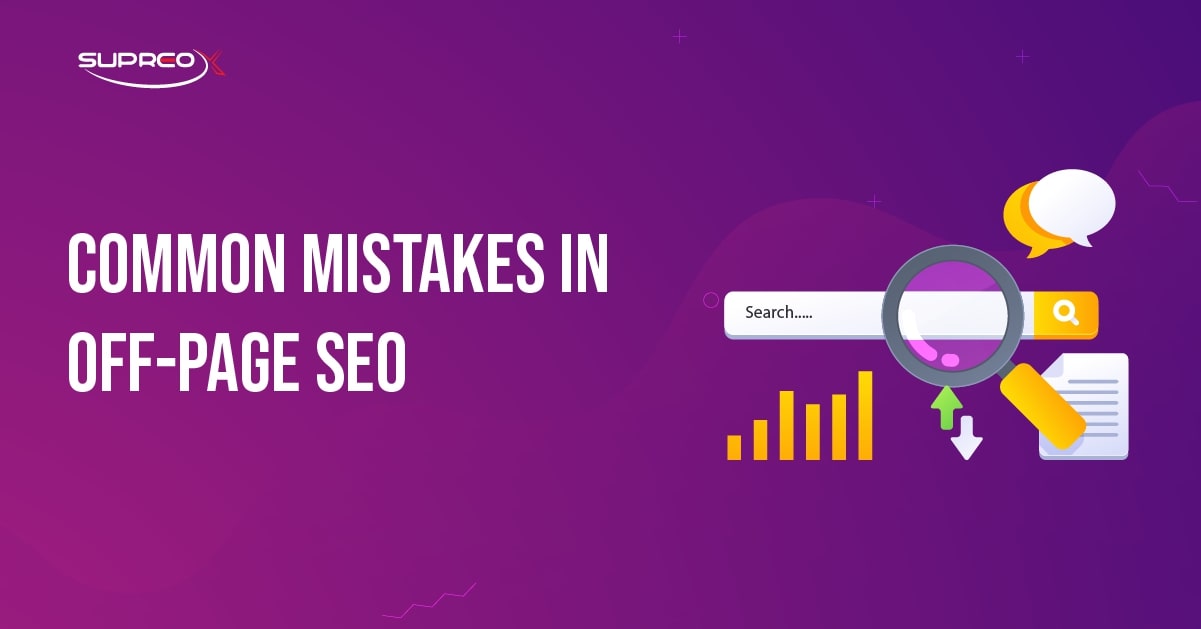
Avoid these mistakes to make sure your off-page SEO strategy is effective:
Low-Quality Backlinks
Links from spammy or unrelated sites can hurt your domain authority. Ensure the sites linking to you are trustworthy and relevant to your industry.
Ignoring Unlinked Brand Mentions
If other sites mention your brand without linking, you will miss out on valuable backlinks. Ask them to link to your site.
Overuse of Anchor Text
Repeatedly using the same keyword in your anchor text can look unnatural to search engines. Mix up your anchor text with branded, generic, and keyword-rich phrases.
Tools to Help with Off-Page SEO
The right tools can help you measure your off-page SEO success and find new opportunities.
Best Tools to Use:
Ahrefs: Helps you track your backlinks, see which sites link to you, and find opportunities for new links.
SEMrush: A great tool for analyzing your site’s authority score, finding referring domains, and monitoring your brand’s online presence.
Moz: Tracks your domain authority and helps you discover new link-building opportunities.
BuzzSumo: Shows who mentions your brand and helps you find popular content ideas.
Google Alerts: Notify you when someone mentions your brand online.
How to Measure Success in Off-Page SEO?
To know if your off-page SEO efforts are working, track these key metrics:
1. Number of Backlinks
Keep an eye on how many backlinks your site has and where they’re coming from. High-quality backlinks from trusted sites are better than lots of links from low-quality sites.
2. Domain Authority
Check your domain authority to see how strong your site is compared to others. Tools like Moz can help you track this.
3. Referring Domains
See how many different sites are linking to yours. The more unique, trusted sites that link to you, the better.
4. Brand Mentions
Track brand mentions to find out when people talk about your brand online. This can help you find new link opportunities.
5. Social Media Engagement
Look at how often people share and comment on your content on social media. While social shares don’t directly improve SEO rankings, they help increase your site’s visibility and bring in more visitors. The more people engage with your content, the more likely your site will earn backlinks and brand mentions.
6. Online Reviews and Ratings
Monitor reviews on platforms like Google Business Profile, Yelp, and industry-specific review sites. Positive online reviews and ratings contribute to trust signals, showing search engines that your site is reliable and valued by users.
7. Authority Score and Page Authority
Regularly check your authority score and page authority using tools like SEMrush and Moz. The scores show your site’s strength compared to competitors and help you understand how your link-building and off-page SEO efforts impact it.
Best Practices for Long-Term Off-Page SEO Success
Long-term off-page SEO success depends on building trust and authority. Focus on quality backlinks from reputable sites, diversify your link-building strategies, and engage your audience through reviews and user-generated content.
Follow Google’s E-E-A-T guidelines by showing expertise, experience, and trustworthiness in your content. Stay active on social media and keep your content fresh to attract links and stay relevant in search results.
Build Quality Over Quantity
When it comes to backlinks, focus on quality rather than quantity. One link from a well-respected, high-authority site is worth more than dozens of links from low-quality sites. High-quality backlinks help improve your domain authority and show search engines that your site is trustworthy.
Diversify Your Links
Don’t rely on one type of link-building strategy. Use a mix of guest posts, brand mentions, unlinked mentions, and social media marketing to create a natural-looking link profile.
Engage Your Audience
Encourage user-generated content by asking your audience to share their experiences, write reviews, or post photos related to your brand. This type of content builds trust signals and can lead to organic backlinks.
Follow E-E-A-T Principles
Make sure that your content and off-page activities align with Google’s E-E-A-T guidelines:
Experience: Show that your site and content creators have experience in the topics they cover.
Expertise: Publish content that shows your knowledge of your industry.
Authoritativeness: Get backlinks from respected sites and brand mentions in your field.
Trustworthiness: Build a reputation for reliable, honest content and respond to customer reviews and feedback.
Keep Your Content Fresh
Update your site’s content regularly to keep it relevant and shareable. This will help attract new backlinks and keep your audience engaged.
Use Social Media Wisely
Be active on social media by sharing new content, engaging with your followers, and collaborating with influencers. This can help spread your content and attract more brand mentions and links.
Advanced Strategies for Off-Page SEO
Ready to improve your off-page SEO? Advanced strategies focus on building trust, earning high-quality backlinks, and increasing brand visibility. Hosting webinars, partnering with industry experts, and designing shareable infographics are excellent ways to showcase your expertise and attract new audiences.
Engaging in community events and encouraging reviews can strengthen local businesses’ presence. Let’s explore these proven tactics to help your site rank higher and reach more customers.
Host Webinars and Live Sessions
Webinars and live video sessions can showcase your expertise and attract a new audience. Share valuable insights and promote them across your social media channels during these events. When other sites mention your webinars, it often leads to backlinks.
Collaborate with Industry Experts
Work with influencers and well-known experts in your field to create co-branded content, such as articles, videos, or podcasts. This will boost your authority score, help you tap into their audience, and gain new backlinks.
Create Shareable Infographics
Infographics are visual tools that simplify complex information and make it easy to share. Sites that find your infographics useful will often link back to your site as the source. This is a great way to gain natural backlinks and improve content distribution.
Engage in Local SEO Activities
If your business serves a local community, engage in the best local SEO practices:
- Participate in local events and get mentioned on their websites.
- Sponsor community projects to get brand mentions and links.
- Encourage local reviews on Google and Yelp to boost your local reputation.
Tools to Help You Improve Your Off-Page SEO
Struggling to boost your site’s authority and rankings? The right tools can uncover backlink opportunities, track progress, and give you a competitive edge. Ready to see what works best? Let’s dive in.
Ahrefs
Ahrefs is great for tracking backlinks, finding new referring domains, and seeing which pages on your site have the most links. It also helps you check your domain authority and find new link-building opportunities.
SEMrush
SEMrush offers tools for link-building, tracking your authority score, and analyzing your backlink profile. It also helps you monitor your competitors and identify areas for improvement.
Moz
Moz is useful for checking your domain authority and page authority. It also helps you discover new referring domains and analyze your existing links.
BuzzSumo
BuzzSumo helps you see which content performs best in your industry and who is talking about your brand. This can help you find brand mentions that don’t link to your site and give you ideas for new content marketing strategies.
Google Alerts
Google Alerts lets you know when people mention your brand online. Use it to find unlinked brand mentions that you can turn into backlinks.
Track Your Off-Page SEO Success

Monitor Your Backlink Profile
Track your backlinks using tools like Ahrefs, SEMrush, and Moz. Ensure they come from quality sites. If you find low-quality or spammy links, use the disavow tool in Google Search Console to remove them.
Keep an Eye on Your Domain Authority
Your domain authority shows how well your site is likely to rank compared to others. Watch this number to see if your link-building efforts are paying off.
Check Your Social Media Engagement
Track how often people share, like, and comment on your content. This helps you understand what type of content people like and are willing to share, which can lead to more brand mentions and backlinks.
Measure Traffic from Referring Domains
See how much traffic comes from other sites that link to yours. This helps you know which backlinks are the most valuable and which referring domains bring in visitors.
Analyze Online Reviews
Keep track of what people say about your brand on review sites and social media. Positive online reviews and ratings build trust, while negative feedback is an opportunity to improve and show that you care about your customers.
Common Mistakes to Avoid
Even with the best intentions, certain mistakes in off-page SEO can harm your rankings instead of helping them. Focusing too much on quantity over quality, ignoring user engagement, or overusing the same anchor text are just a few missteps to watch out for. Avoiding these pitfalls ensures your efforts build trust, authority, and lasting results. Let’s dive into these common mistakes and how to avoid them.
Do Not Focus Only on Quantity Over Quality
Getting many backlinks is good but must come from trusted, relevant sites. Links from low-quality or spammy sites can hurt your SEO and domain authority.
Do Not Ignore User Engagement
Building links isn’t enough. You must create content people want to read, share, and discuss. The more engagement you have, the more trust signals your site will have.
Do Not Use the Same Anchor Text
Avoid using the exact keywords in your anchor text for every link. This can look unnatural to search engines. Instead, use a mix of branded terms, keyword phrases, and generic text.
Final Thoughts
Off-page SEO is about making your website look good to others and showing search engines that your content is helpful and reliable. Strategies like link building, social media sharing, digital PR, and managing your online reputation can strengthen your site and help it rank higher in search results.
Use tools like Ahrefs, SEMrush, and Moz to check your progress. Follow E-E-A-T rules to build a website that people and search engines trust.
Start using these strategies today, and watch your website become stronger and more successful in the changing world of SEO.
